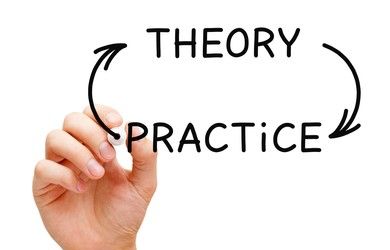
Leadership coaching has emerged as a powerful tool for personal and professional development, helping individuals unlock their full potential and enhance their leadership capabilities. In this blog, we will explore the fascinating history of leadership coaching, tracing its roots and evolution over the years. Join us on this journey as we uncover the transformative impact of leadership coaching and its significance in today’s dynamic business landscape.
The Early Beginnings:
Although the formal practice of leadership coaching gained prominence in recent decades, its roots can be traced back to ancient times. In ancient Greece, philosophers like Socrates mentored and guided their disciples, employing a coaching-like approach to stimulate critical thinking and self-reflection. The concept of coaching further developed in various forms throughout history, with influential figures like Confucius, Aristotle, and Leonardo da Vinci imparting wisdom and guidance to their followers.
The Emergence of Modern Coaching:
The modern practice of leadership coaching began to take shape in the mid-20th century. The term “coaching” was initially associated with sports, where coaches played a pivotal role in guiding athletes to achieve their best performance. This concept of coaching soon transitioned into the realm of personal and professional development.
In the 1980s, executive coaching emerged as a distinct discipline within the business world. Professionals recognized the need for personalized guidance to help leaders overcome challenges, enhance their skills, and excel in their roles. The field of coaching continued to evolve, with pioneers like Timothy Gallwey, who introduced the concept of “The Inner Game” and emphasized the importance of self-awareness and mindset in performance improvement.
The Rise of Leadership Coaching:
In the late 20th century, leadership coaching gained significant momentum as organizations began to recognize the impact of effective leadership on their success. As leadership theories evolved, coaching emerged as a valuable tool to bridge the gap between theory and practice.
Leadership coaching became a sought-after resource for executives, managers, and aspiring leaders looking to enhance their leadership competencies. Coaches provided a supportive and confidential space for leaders to explore their strengths, identify areas for growth, and develop strategies to overcome obstacles. The focus shifted towards empowering leaders to leverage their unique talents, build emotional intelligence, and foster meaningful relationships within their teams.
Today’s Leadership Coaching Landscape:
In the 21st century, leadership coaching has become an integral part of leadership development programs in organizations of all sizes and industries. It has evolved beyond a remedial tool for struggling leaders to an essential practice that nurtures high-potential talent and cultivates a culture of continuous growth.
Modern leadership coaching leverages evidence-based methodologies, psychological insights, and behavioral science to facilitate transformative change. Coaches employ a variety of techniques, including powerful questioning, active listening, goal setting, and accountability structures, to guide leaders toward their desired outcomes.
Leadership coaching has also expanded beyond traditional one-on-one sessions to include team coaching, group coaching, and virtual coaching, allowing for more scalable and impactful interventions.
Leadership coaching has come a long way, drawing inspiration from ancient philosophies and evolving to meet the demands of today’s dynamic business environment. By providing personalized guidance, fostering self-awareness, and empowering leaders to reach their full potential, coaching has become an indispensable tool for leadership development.
As organizations strive to thrive in an ever-changing landscape, the role of leadership coaching continues to grow in significance. By embracing the rich history and transformative power of coaching, individuals and organizations can unlock new levels of success, unleash their potential, and shape a future driven by exceptional leadership.

